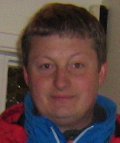Thomas Arts
Professor and co-founder of QuviQ AB
QuviQ AB

Prof Thomas Arts is the co-founder and CTO of Quviq, a small company that produced QuickCheck, as testing tool for Erlang. Thomas has over 30 publications in various journals and has experience refereeing conferences and workshops. He has successfully introduced some new technologies to the industry, the latest being QuickCheck, a tool for property based testing and aims to support test driven development. Thomas is also a professor at Chalmers University of Technology in Gothenburg, Sweden.
Thomas was one of the members of Ericsson's computer science lab where he worked on program verification and the development of the Erlang programming language. He has also worked in the broad spectrum theoretical computer science, formal methods and industrial case-study research, mainly applying all kind of techniques to systems written in Erlang.
Thomas was one of the members of Ericsson's computer science lab where he worked on program verification and the development of the Erlang programming language. He has also worked in the broad spectrum theoretical computer science, formal methods and industrial case-study research, mainly applying all kind of techniques to systems written in Erlang.

Thomas Arts is Giving the Following Talks
Testing abstract data structures with QuickCheck
In this presentation we present a method for testing library modules that implement data structures. The method is applicable to OTP libraries like sets, dict, queue etc, but also to your own libraries.
The method is based on writing a data type specification in Erlang and using QuickCheck to generate test cases. The method guarantees that the data structure is fully tested and that no other tests need to be added.
The method is based on writing a data type specification in Erlang and using QuickCheck to generate test cases. The method guarantees that the data structure is fully tested and that no other tests need to be added.
Thomas Arts is Teaching the Following Courses
Target Audience: Software Developers
Prerequisites: Participants should be familiar with Erlang and use it frequently.
Objectives:
• Use the important features of QuickCheck
• Build-up to a realistic example of building a banking server
Goal: Understand QuickCheck and be able to use it with Erlang.
Duration: Three days.
Registration: 08:30 on 7th June 2010.
Venue: London Fruit & Wool Exchange
Description:This course is intensive, modular and hands-on, with each module made-up of lectures and practical exercises. Since QuickCheck builds on Erlang, we take advantage of participants' prior knowledge to introduce QuickCheck more quickly.
Prerequisites: Participants should be familiar with Erlang and use it frequently.
Objectives:
• Use the important features of QuickCheck
• Build-up to a realistic example of building a banking server
Goal: Understand QuickCheck and be able to use it with Erlang.
Duration: Three days.
Registration: 08:30 on 7th June 2010.
Venue: London Fruit & Wool Exchange
Description:This course is intensive, modular and hands-on, with each module made-up of lectures and practical exercises. Since QuickCheck builds on Erlang, we take advantage of participants' prior knowledge to introduce QuickCheck more quickly.
